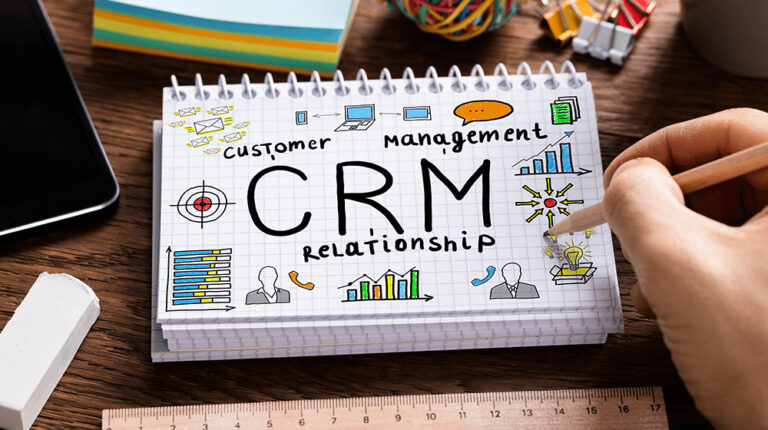Source: Äri-IT Spring 2022
Authors: Margit Roosnum, consultant at BCS Itera; Olga Saddarov, project manager at BCS Itera; Helen Sagadi, consultant at BCS Itera
What makes the Microsoft’s customer relationship management (CRM) solution Dynamics 364 Sales a game changer? Who is this product for? Why are there so many myths surrounding this solution? These and many other questions are answered by the team that manages the CRM projects at BCS Itera.
Microsoft’s CRM (Customer Relationship Management) solution Dynamics 365 Sales has started to gain popularity in Estonia in recent years. The product is actually not new – Dynamics Sales is well-known in the IT world – but thanks to the latest developments by Microsoft, it can now actually be interfaced with many Microsoft products, including the most common ERP software, Dynamics 365 Business Central.
This has opened new opportunities for companies striving for comprehensive solutions that are easy to integrate. For BCS Itera, this news from the IT world played a big role in adopting an important decision: from 2021, BCS Itera also added more complex CRM projects solutions in its portfolio in addition to ERP (Enterprise Resource Planning), HRM (Human Resource Management), and BI (Business Intelligence) and now successfully implements, develops and supports CRM systems.
SMALL CRM, CORK BOARD, AND SQUARED NOTEBOOK
”We saw a clear need for an efficient and ERP-integrated CRM solution”.
People seeking or inventing tools themselves often indicates a need in the market. For example, a company has introduced a modern and expensive financial solution, but the actual analytics is still entered into the squared notebook of the chief accountant for some reason. Or an HRM system has technically been implemented, but the work is actually planned using a cork board on the wall.
A similar situation is often seen in sales and marketing departments. A unified ERP system is implemented and functioning; finance, purchases, warehouse, production, payroll/HR, and analytics are in one solution, yet the information of the company’s customers and the communications concerning them do not reach the common system, but remain in the mailboxes, calendars, and notes of the sales staff. Sometimes the situation was improved by developments that increased the ease of use or by additional training, but often we had to admit that the sales team really needed a more comprehensive CRM system.
The determining factor is the complexity of the company’s sales processes. Is it a sale or just a registration of an order? If the company is engaged in sales, i.e. the keywords are communication with the customer, use of different communication channels, and maintaining and developing relationships, the functionality of ERP can actually be too narrow and lacklustre.
This is where “small” CRMs often come into play, which have widely advertised off-the-shelf solutions with colourful buttons and a fancy user interface, but very limited functionality. The integration of such a solution is often not justified: the client bears all the risks associated with the integration, but gains nothing in terms of functionality. There may be even more problems, for example, how to confirm the correctness of the data compared to the ERP system and avoid entering incomplete or even incorrect data. In addition, two truths are often used, i.e. the solutions are not integrated at all.
Therefore, we often found ourselves in a difficult situation: on the one hand, it was not reasonable to integrate the ERP with a separate external CRM solution, and on the other, we saw that the standard ERP did not cover our needs.
SAME, BUT DIFFERENT
Is Dynamics Sales different from other CRM solutions on the market? We dare to say that it is. A few years ago it was a stand-alone solution, albeit well-known and more extensive than average. However, the final setup of Microsoft Connector took it to a whole new level.
- First: the solution has a very wide functionality. There are very few situations where a solution needs to be developed in order to create additional functionalities. Rather, the capabilities needed to support each specific customer’s processes are selected during configuration. Most CRM solutions cannot compete with Dynamics Sales in terms of functionality, as we are talking about completely different categories.

- At one time, such scales have given rise to myths that it is a very complex system which is suitable only for large organisations that are not commonly found in Estonia. In fact, the solution is very flexible. Many customers use Dynamics Sales in a simplified and so-called combed way and do not even know that the software is actually huge.
- Below is a schematic diagram of two sales processes, for example. You can see that one company uses completely different approaches to transactions, but with the help of Dynamics Sales, both have been successfully solved.
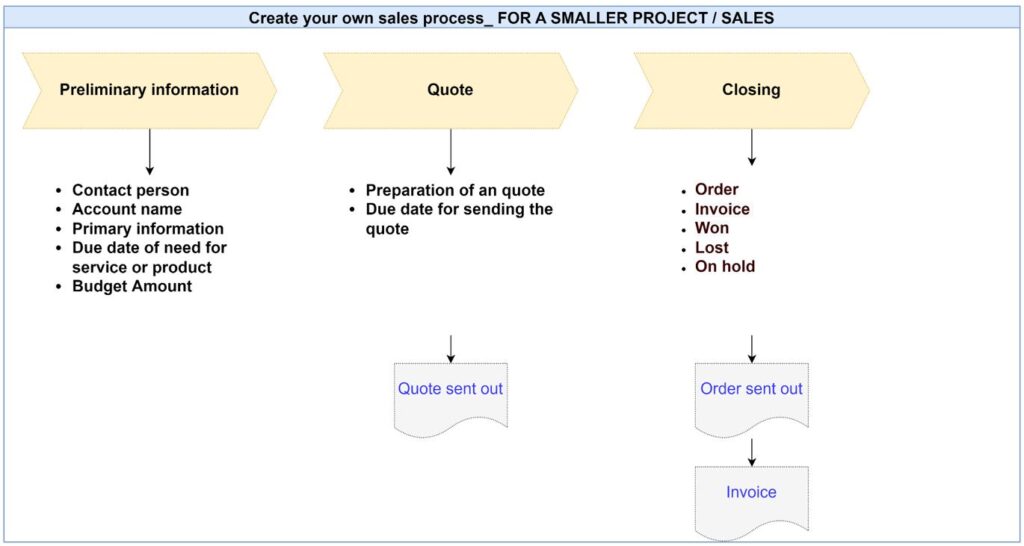
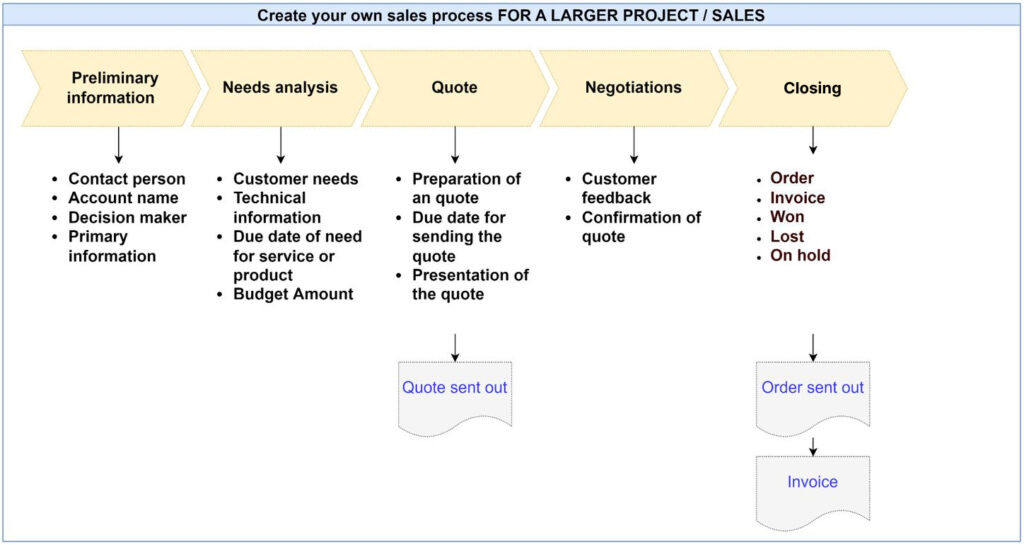
Most customisations can be achieved through configuration, developer skills are only required for more complex integrations. This in turn makes providing support to the solution easier and thus cheaper.
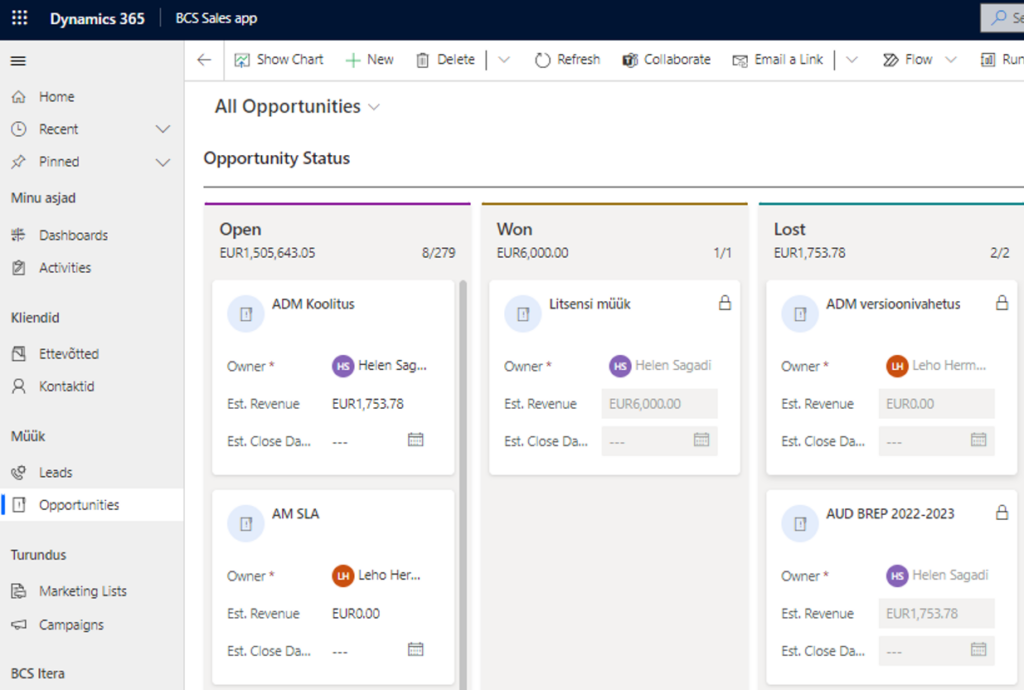
- Dynamics Sales can easily be integrated with SharePoint, Outlook, Teams, MS Office, and many other solutions.
- The PowerBI module is built into the solution, which means that in-depth analytics are available to users.
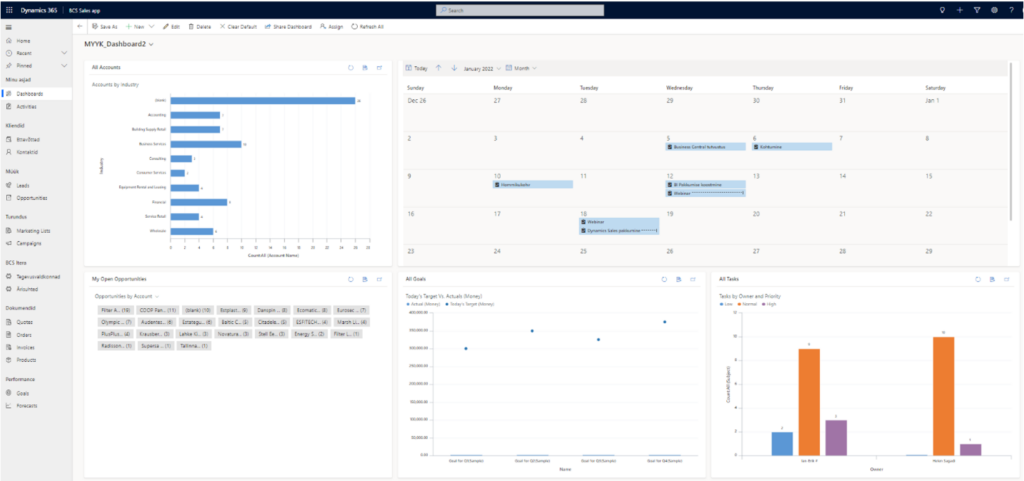
- If the customer is already using the Microsoft Business Central solution, they can get Dynamics Sales licenses at a very affordable price and the solution is already integrated with the ERP. This, in turn, ensures that all the data is consistent and the entire customer lifecycle is traceable.
We find it great that Dynamics Sales, which initially seemed like a big, unknown and scary solution, has been well received on the Estonian market. We are convinced that this will help our companies make their sales more efficient in the future and create a strong competitive advantage.

